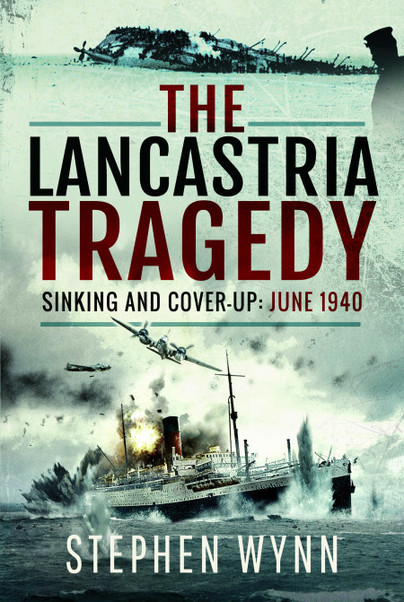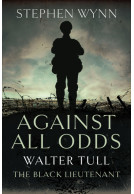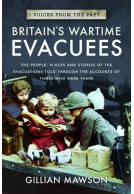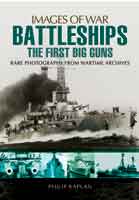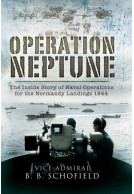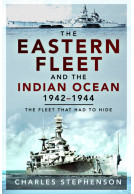The Lancastria Tragedy (Paperback)
Sinking and Cover-up – June 1940
Imprint: Pen & Sword Maritime
Pages: 192
Illustrations: 16 black and white
ISBN: 9781526706638
Published: 13th August 2020
Last Released: 20th May 2021
(click here for international delivery rates)
Order within the next 9 hours, 20 minutes to get your order processed the next working day!
Need a currency converter? Check XE.com for live rates
The story behind the sinking of the Lancastria comes in two parts: the sinking of the ship itself and the people who died, and the aftermath which led to allegations of a government cover up ordered by Winston Churchill. There is an ‘officially accepted' list of those who died, but allegations that hundreds more went down with the ship, and have not been accounted for, still linger to this very day.
The Lancastria, a pre-war Cunard cruise liner, was requisitioned by the Admiralty and turned in to a war-time troop ship. On 17 June 1940, whilst being used as part of Operation Aerial to evacuate civilian refugees and British military personnel from France, it was anchored about 5 miles from the coast of St Nazaire. While waiting for a naval escort to see it safely back to England, the Lancastria was attacked by enemy aircraft and sank within 20 minutes. As no official figures have ever been released, there is no way of knowing exactly how many lives were lost.
Winston Churchill placed what was known as a ‘D’ Notice on the tragic events, thereby restricting the Press from reporting it. However, once a New York newspaper had broken the story, the flood gates were opened for British newspapers to follow suit. But what was the purpose of the ‘D’ Notice? Was it because the British public had already received too much bad news since the war had begun, as Churchill declared? Or was it a cover-up?
Those who survived the incident were told in no uncertain terms not to speak about their experience, although plenty did. With much of the information about the Lancastria’s sinking in the public domain within a matter of days, the question has to be asked, why are official documents in relation to the matter being kept secret until the year 2040?
As Featured In
The Northern Mariner/Le marin du nord
Vol. 32, No. 1 (Spring 2022)
An interesting account of the shameful bombing and sinking of the passenger liner Lancastria which was loading refugees in the French port of St Nazaire prior to embarkation to England. The ship was already overladen with mainly civilians when, on the 15 June, she was bombed by a number of the Luftwaffe's Junkers 88 bombers from its Kampfgeschwader 30 group. The number of civilians on board is unknown but certainly ran to some 5,000. Many died in the bombing attack and more succumbed to drowning when the vessel sank about twenty minutes after the first bombs fell.
Dr Adrian Greaves
Not satisfied with sinking the liner, under the command of Captain sharp,the aircraft returned to straff those swimming in the sea; worse, the pilots saw oil leaking from the vessel and rapidly spreading across the area; they dropped flares onto the oil to ignite it.
The bulk of the book is taken up with investigating the reason for the British government places a 'D' notice on the press to delay the news reaching the public. The problem with investigating the reasons for such decisions, especially in wartime, is that such decisions were made at the time and were based on the information available. It is too easy to later criticise when all the information is available - but that's politics.
Of equal interest would have been to see any research conducted into German behaviour at the time; from bombing a passenger liner to machine gunning thousands of people struggling to survive in the cold and oil covered sea; as for the dropping of flares to ignite the oil... what can one say - except that two years later, another similar vessel, the Lanconia, and coincidently captained by Captain Sharp again, and carrying nearly 2,000 Italian prisoners-of-war, was sunk by a German submarine with an almost total loss of life, including the unfortunate Captain Sharp.
The collection of survivors' accounts is fascinating and poignant. As time moves us on from the memories of WWII it becomes more difficult for modern readers to imagine and understand what these people went through.
This is a very well researched and well written book which I would very highly recommend to our readers.
Shipping – Today and Yesterday, February 2021
As featured by
The Coastal Command & Maritime Associations newsletter
An interesting review of a little known event from WW2. The author provides great detail of individuals and their account of the sinking, as well as good factual material of how and why it occurred. A good read for any historical buff.
NetGalley, Ron Baumer
Stephen Wynn's The Lancastria Tragedy provides firsthand accounts of what happened during the lead up to the maritime disaster of June 1940 as well as the aftermath. It is a well researched book. I only wish we could find out more about those who were lost. After reading this book, I am even more determined to reading the materials that will be released regarding this matter in 2040. Is there any way we can petition to have them released sooner? Overall, this is an interesting subject matter, the writing is solid, and I give the book a 4/5.
NetGalley, Kelly Byrd
About Stephen Wynn
Stephen is a retired police officer having served with Essex Police as a constable for thirty years between 1983 and 2013. He is married to Tanya and has two sons, Luke and Ross, and a daughter, Aimee. Both Stephen’s grandfathers served in and survived the First World War, one with the Royal Irish Rifles, the other in the Mercantile Marine, whilst his father was a member of the Royal Army Ordnance Corps during the Second World War.
When not writing Stephen can be found walking his dogs with his wife, Tanya, at some unearthly time of the morning when most normal people are still fast asleep.







